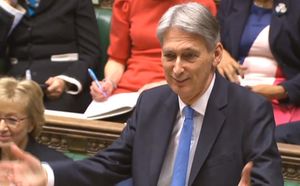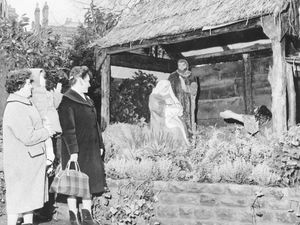Will a pay rise ease the pain for crisis-hit NHS?
The world’s greatest health service turns 70 this year, but the party mood will depend on funding increases, staff happiness and patient waiting times.
Happy Birthday, NHS.
This July marks the 70th anniversary of Britain's landmark health service, which was founded as a wave of socialist sentiment swept through the country in the years after the Second World War.
But although it is undoubtedly one of our most loved institutions, the NHS continues to be beset by a multitude of problems, including funding issues, bed blocking, staff shortages and lengthy waiting times.
It has become the bane of politicians from all parties, none of whom seem to be able to solve the conundrum of how to pay for something that appears to require a bottomless pit of money.
And the pressures get worse by the year.
COMMENT: Give cash to NHS not foreign aid
The recent release of the first lot of NHS winter performance statistics showed that, one week in, the NHS is already under immense pressure.
Walsall Manor Hospital was one of seven in the country which hit 99 per cent capacity in the run up to Christmas, and was completely full for 26 of 35 nights leading up to and including December 24.
The predicament of the NHS is summed up by Saffron Cordery, director of policy and strategy at NHS Providers, who says that the fact that the figures are not 'dramatically worse' than last year should be considered 'an achievement'.
"We can’t say how it will look in three week, but trusts have put in more preparation than ever before and there are national plans as well," she said.

Last year saw several new initiatives, including the placement of GPs at the entrances of A&E departments allowing patients to be more swiftly directed towards the appropriate treatment area.
Meanwhile hospitals have started working more closely with care homes to get doctors visiting and checking on patients to prevent them getting so ill they need to come to hospital.
And for all the widespread concern, there are green shoots of transformation on the horizon for 2018.
By March many patients will be able to book a routine GP appointment in the evenings and on weekends, a move that will be rolled out across the entire country by early 2019.
Ministers are consulting on a four-week waiting-time target for young people to access mental health support.
But none of this does anything to alleviate the strain on funding.
In his Budget Chancellor Philip Hammond adopted the air of a great benefactor when he pledged £1.6 billion for the NHS – but the figure was less than half the amount that health bosses had asked for.
Siva Andaciva, chief analyst at the health think tank the King’s Fund, said: "There’s no massive 70th birthday transformational funding boost to pay for new technology and reverse waiting list decline.
"We’re more looking at muddling through."
The funding was given with the express purpose of restoring the NHS to hitting waiting times targets in A&Es and for surgical treatment that have been unmet for years.
The reality is that these targets are still a long way off, although critics argue that aiming to see 95 per cent of patients within four hours is unrealistic.
Arguably the biggest change for the NHS was left open-ended in the Budget.
After seven years of pay for nurses, midwives and paramedics being frozen or capped at one per cent, the Treasury announced that it would provide funding for a pay lift above inflation this year.
How this impacts on the NHS staffing shortage remains to be seen.
According to official figures, there are 42,000 NHS jobs in nursing, midwifery or the allied health professions, such as physiotherapists, currently vacant, with the pay cap frequently cited as one of the key reasons behind low staff numbers.
While the Chancellor said he would rubber-stamp any recommended pay increase, he made it clear it will be contingent on 'productivity improvements' and contract negotiations for staff on NHS agenda for change contracts.
Such reforms are likely to involve changes to unsociable working hours allowances, which has raised concerns of a repeat of the junior doctors strikes of 2016.
These strings attached to any pay settlement are 'concerning', according to the Royal College of Nursing’s chief executive and general secretary, Janet Davies, who said nurses should not be expected to 'fund their own pay rise'.
"More and more nursing staff are struggling to pay their bills or even to put food on the table for their families, and increased pay is vital so that existing staff stay, and the health service is able to begin to fill the tens of thousands of nursing vacancies," she added.
The strength of the Chancellor's promised pay rise is likely to determine whether or not 2018 marks a happy birthday for the NHS.





